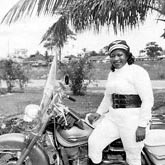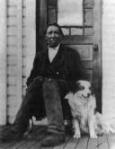In honor of Black History Month, here are few profiles of contributors to history of African descent:

Lemuel Haynes
First Black Minuteman
Lemuel Haynes: He served as a minuteman during the American Revolutionary War, fighting at the April 1775 Battle of Lexington. He was an indentured servant who enlisted in the war after earning his freedom. He later became an ordained Protestant minister.

Crispus Attucks
First Casualty of the American Revolution
Crispus Attucks: The former slave was the first casualty of the American Revolutionary War when he was killed during the Boston Massacre. In 1888 the Crispus Attucks monument was unveiled in the Boston Common.
Thanks to Tanisha and Bryan Jones and their daughter Sinai for compiling these profiles from the following sources:
1) The Encyclopedia of African-American Heritage, by Susan Altman
2) The Roots website, theroots.com
3) Famous Black Inventors website, black-inventor.com




